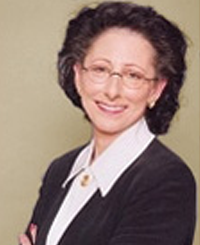2nd (Non-Financial) Tip to Saving the Family Fortune
In last month’s article, “7 (Non-Financial) Tips to Saving the Family Fortune” we looked at what family fortune means to you and your family. Understanding this is important because when families get involved with caregiving and difficult decisions need to be made, all kinds of sibling issues can come up from who should bear the day to day caregiving responsibilities to how much money should be spent to “mom loved you more than she loved me”! When difficult decisions need to be made, if you don’t look at the big picture, you may lose the most precious family fortune of all – the family itself. This is also a critical first step because once you all determine what’s important to you, every decision you make as a family will be judged against that standard.
The next step then is to begin building the framework to successfully work together. At this point, I recommend you start by defining some terms as they relate to “core decisions” – those decisions from which all other decisions are made. (For example, what care is needed for your aging loved one, where should your aging love one live, who should provide the care, and how you will pay for the care?)
Take the word “family” for example. For the purpose of making core decisions, you may define “family” to mean only your siblings. There can’t be too much disagreement about that, can there? Yes . . . just like family fortune, “family” can mean different things to different people.
In the “olden days,” ‘family’ usually meant grandparents, parents, siblings, and children – perhaps with a smattering of aunts and uncles thrown in. However, as we all know, families are much more complicated these days. Modern families include “steps” (his, mine, and ours), committed relationships, spouses, etc. Some people may even include close family friends.
Mary may want to include her husband who shares the expense of Mary’s participation. Brother Bob may want to include his wife because she helps with the caregiving. Sister Jane may be doing most of the work but depends on her children to get mom to the doctor. Although the family shares the expenses, they may have a paid caregiver who provides the hands-on caregiving. Should all of these people be included?
I would love to be able to give you a definitive answer but there is no right or wrong answer – only the answer that is right for your situation. My recommendation is to have as few people as possible making the core decisions but who should be included is a decision only you and your family can make.
Another potentially problematic words is “fair”. When asked what is important, most families say that being “fair” is very important but what is fair to you may not be to me! For example, when it comes to caregiving – what does fair mean? If you live 3,000 miles away, you may think it’s “fair” that the person living the closest does all the caregiving. The person doing all the caregiving may think that it’s only fair that they have the last word on all the caregiving decisions, or a caregiver may think that, if they’re doing all the caregiving, the other siblings should pay all the bills.
And what does fair mean when it comes to dividing up family possessions? Does fair mean equal? Equal what? Equal number of items? Equal dollar value? Equal emotional value? What if everyone wants a particular item? What is a fair way to decide who gets it? Allowing the person who spent the most time taking care of the parent getting the most probably sounds “fair” to the person who has spent the most time caregiving but not to the person who couldn’t help – or who provided financial support.
Again, there is no right or wrong answer – only the answer that is right for you and your family – but you can see that there is a lot of room for discussion. When the value of something can’t be easily measured in dollars, the whole process becomes more sensitive so it’s better to define your terms right up front.
With Thanksgiving coming up, why not take this opportunity to talk with your siblings and start the process of saving your family fortune.
Happy Thanksgiving!
© Copyright AgeWiseLiving® 2008 You can find information about “The Ultimate Caregiver’s Survival Guide”: The step by step blueprint to resolving your eldercare issues by choice, not crisis WORKBOOK, AgeWiseLiving® seminars and free teleseminars, and to sign up for Barbara’s free monthly newsletter at www.AgeWiseLiving.com or by calling toll-free (877) AGE-WISE. Barbara E. Friesner is an author and the country’s leading Generational Coach and expert on issues affecting seniors and their families. She is an adjunct professor at Cornell University, where she created and teaches “Seniors Housing Management” at Cornell’s School of Hotel Administration.



Leave a Reply
You must be logged in to post a comment.